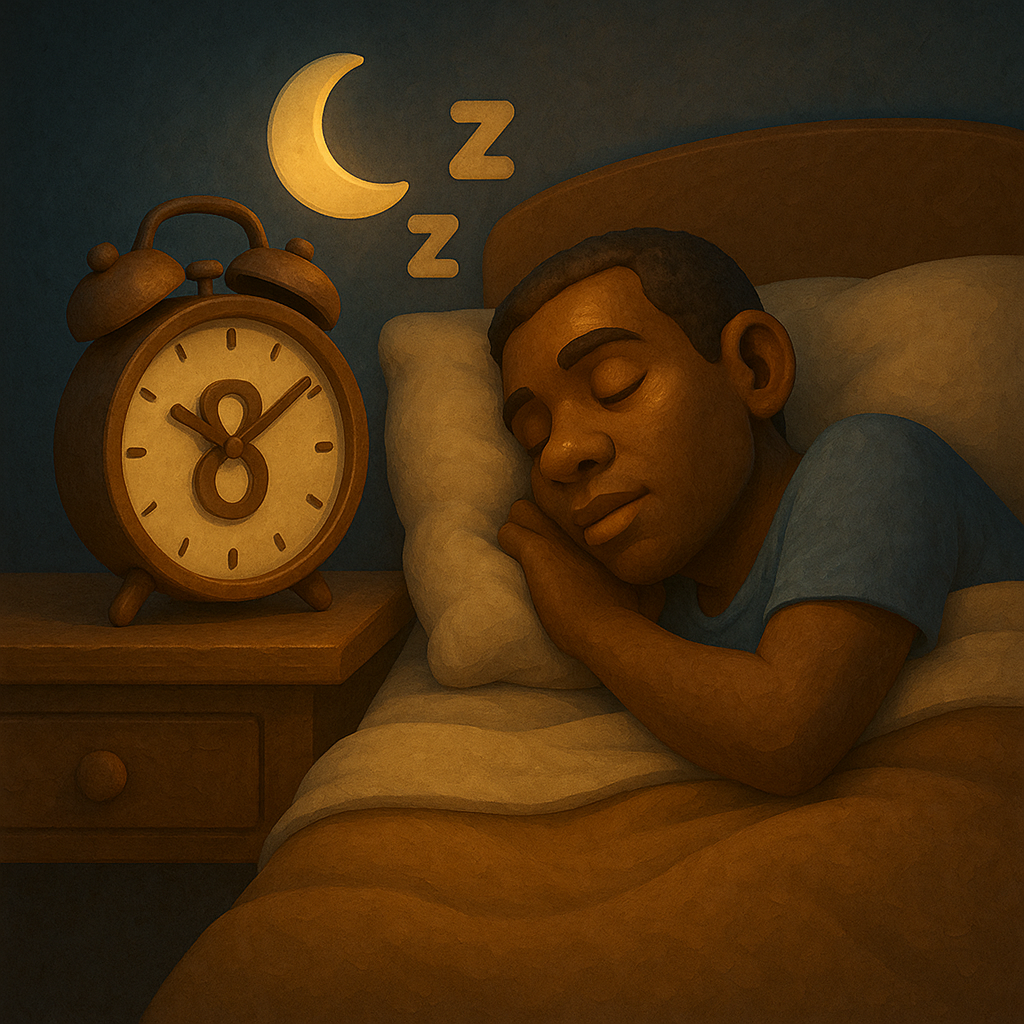Sleep
Definition
The term "sleep" refers to a natural state of rest for the mind and body, characterized by a reduction in consciousness and voluntary movement.
Parts of Speech
- Noun
- Verb
Pronunciation
American English
- IPA Pronunciation: /sliːp/
- Respelling: SLEEP
British English
- IPA Pronunciation: /sliːp/
- Respelling: SLEEP
Etymology
The word "sleep" originates from Old English "slǣpan" (verb) and "slǣp" (noun), meaning "rest" or "sleep," and is derived from Proto-Germanic "*slēpaną" and Proto-Indo-European "*sleb-" meaning "to be weak" or "to relax."
Derivatives
- Sleeper (noun)
- Sleepy (adjective)
- Sleepiness (noun)
- Oversleep (verb)
- Sleepwalk (verb)
Synonyms
- Rest
- Slumber
- Nap
Antonyms
- Wakefulness
- Awake
- Alertness
Usage
The term "sleep" is used to describe the act of resting or being in an unconscious state for physical and mental recovery. For example: "I need to get more sleep," or "He went to sleep early last night."
Related Terms
- Dream: A series of thoughts, images, or sensations occurring during sleep.
- Insomnia: The inability to sleep.
- Hibernation: A prolonged period of rest or inactivity in animals.
Detailed Definitions
Noun
- A natural state of rest: Refers to a regular, essential state for recovery of body and mind.
- Example: "Getting eight hours of sleep is recommended for adults."
- A period of inactivity or dormancy: Refers to rest in a metaphorical sense, such as plants or machinery.
- Example: "The volcano has been in sleep for centuries."
Verb
- To rest in a state of reduced consciousness: Refers to the act of engaging in sleep.
- Example: "She needs to sleep after a long day."
- To spend time resting: Refers to time allocated to sleeping.
- Example: "He sleeps for at least seven hours each night."
sleep



🇨🇳 Mandarin
- 睡觉 (sleep, to go to bed)
- IPA: /ʂweɪ tɕiɑʊ/
- Respelling: shuei jiao
- 瞌睡 (doze, nap)
- IPA: /kʰɤ ʂweɪ/
- Respelling: ke shuei
🇮🇳 Hindi
- सोना (sleep, to go to bed)
- IPA: /soːnaː/
- Respelling: sona
- झपकी (nap, doze)
- IPA: /d͡ʒʱʌpkiː/
- Respelling: jhapki
🇪🇸 Spanish
- Dormir (sleep, to go to bed)
- IPA: /dorˈmiɾ/
- Respelling: dor-mir
- Echar una siesta (nap, doze)
- IPA: /ˈetʃar ˈuna ˈsjesta/
- Respelling: e-char una siesta
🇫🇷 French
- Dormir (sleep, to go to bed)
- IPA: /dɔʁ.miʁ/
- Respelling: dor-mir
- Faire la sieste (nap, doze)
- IPA: /fɛʁ la sjɛst/
- Respelling: fair la siest
🇸🇦 Modern Standard Arabic
- نوم (sleep)
- IPA: /nu:m/
- Respelling: num
- قيلولة (nap, doze)
- IPA: /qajlu:lah/
- Respelling: qayloola
🇧🇩 Bengali
- ঘুম (sleep, to go to bed)
- IPA: /ɡʱum/
- Respelling: ghum
- নিদ্রাভঙ্গি (nap, doze)
- IPA: /nid̪rɑːbʱoŋɡi/
- Respelling: nidrabhongi
🇷🇺 Russian
- Спать (sleep, to go to bed)
- IPA: /spatʲ/
- Respelling: spat'
- Вздремнуть (nap, doze)
- IPA: /vzdrʲemnutʲ/
- Respelling: vzdremnut'
🇵🇹 Portuguese
- Dormir (sleep, to go to bed)
- IPA: /doɾˈmiɾ/
- Respelling: dor-mir
- Cochilar (nap, doze)
- IPA: /koʃiˈlaɾ/
- Respelling: co-chi-lar
🇮🇩 Indonesian
- Tidur (sleep, to go to bed)
- IPA: /ˈtidur/
- Respelling: ti-dur
- Tidur siang (nap, doze)
- IPA: /ˈtidur si.aŋ/
- Respelling: ti-dur si-ang
🇩🇪 German
- Schlafen (sleep, to go to bed)
- IPA: /ˈʃlaːfən/
- Respelling: shla-fen
- Nickerchen machen (nap, doze)
- IPA: /ˈnɪkɐçən ˈmaxən/
- Respelling: nik-er-chen ma-chen
🇯🇵 Japanese
- 寝る (sleep, to go to bed)
- IPA: /neɾu/
- Respelling: neru
- 昼寝 (nap, doze)
- IPA: /hirune/
- Respelling: hiru-ne
🇻🇳 Vietnamese
- Ngủ (sleep, to go to bed)
- IPA: /ŋu˧˩/
- Respelling: ngu
- Ngủ trưa (nap, doze)
- IPA: /ŋu˧˩ truə˧˧/
- Respelling: ngu trua
🇰🇷 Korean
- 자다 (sleep, to go to bed)
- IPA: /t͈ʃada/
- Respelling: ja-da
- 낮잠 (nap, doze)
- IPA: /nat͈ʃam/
- Respelling: nat-jam
🇹🇷 Turkish
- Uyumak (sleep, to go to bed)
- IPA: /ujumaq/
- Respelling: u-yu-mak
- Şekerleme yapmak (nap, doze)
- IPA: /ʃekeɾleme jɑpmɑk/
- Respelling: shek-er-leme yap-mak
🇵🇰 Urdu
- سونا (sleep, to go to bed)
- IPA: /soːnaː/
- Respelling: sona
- ذرا سونا (nap, doze)
- IPA: /d͡ʒʱʌɾaː soːnaː/
- Respelling: jhura sona





